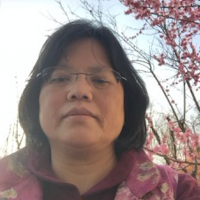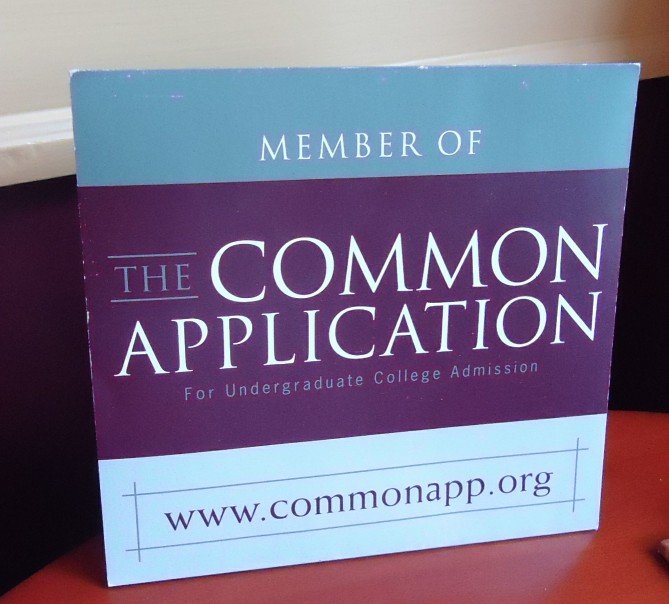Bridging Students with the Community
 A goal of The 2030 Plan in making UVA “a great and good University” is to strengthen its relationship with the community. Shu-Chen Chen’s courses connect UVA students with Chinese native speakers in Charlottesville and stress real-world conversation, increased linguistic proficiency, and an exchange of experiences. Shu-Chen Chen is an assistant professor of Chinese in the Department of East Asian Languages, Literatures & Cultures and Director, Chinese Summer Language Institute in the College and Graduate School of Arts and Sciences at the University of Virginia.
A goal of The 2030 Plan in making UVA “a great and good University” is to strengthen its relationship with the community. Shu-Chen Chen’s courses connect UVA students with Chinese native speakers in Charlottesville and stress real-world conversation, increased linguistic proficiency, and an exchange of experiences. Shu-Chen Chen is an assistant professor of Chinese in the Department of East Asian Languages, Literatures & Cultures and Director, Chinese Summer Language Institute in the College and Graduate School of Arts and Sciences at the University of Virginia.
Reflections on Bridging the Students with the Community in Spring, 2019
 During the spring semester of 2019, I brought groups of students in CHIN3020 to different meeting locations around the Charlottesville area to interview local immigrant partners in Chinese. My students interviewed 10 different community partners in 15 separate meetings that occurred throughout three sequential rounds of exchanges. Following each successive round, students returned to class to present their findings and reflect on the challenges and successes they encountered during their interactions.
During the spring semester of 2019, I brought groups of students in CHIN3020 to different meeting locations around the Charlottesville area to interview local immigrant partners in Chinese. My students interviewed 10 different community partners in 15 separate meetings that occurred throughout three sequential rounds of exchanges. Following each successive round, students returned to class to present their findings and reflect on the challenges and successes they encountered during their interactions.
 In compiling their collected questions and concerns, students found that immigrant partners would benefit tremendously from certain information to help address real-world problems and goals. Specifically, the partners reported that the following topics of advice and consultations in Chinese would be most helpful: 1) US college preparation, applications, and admissions with a focus on first-generation students, 2) social and structural resources to facilitate the creation and expansion of local businesses, and 3) guidance concerning governmental regulations for professional licensure exams.
In compiling their collected questions and concerns, students found that immigrant partners would benefit tremendously from certain information to help address real-world problems and goals. Specifically, the partners reported that the following topics of advice and consultations in Chinese would be most helpful: 1) US college preparation, applications, and admissions with a focus on first-generation students, 2) social and structural resources to facilitate the creation and expansion of local businesses, and 3) guidance concerning governmental regulations for professional licensure exams.
 Besides presenting findings from interviews to the whole class, students also composed essays and reflective journal posts in Chinese, which they have published on Collab Digication. Four of the students also joined the Spring 2019 FolioFest to present their findings from these interviews. The course sites function dually as meaningful case studies to promote the continued betterment of exchanges with local partners, as well as interdisciplinary digital exhibits to showcase the unique learning outcomes and increased linguistic proficiency achieved through real-world interactions.
Besides presenting findings from interviews to the whole class, students also composed essays and reflective journal posts in Chinese, which they have published on Collab Digication. Four of the students also joined the Spring 2019 FolioFest to present their findings from these interviews. The course sites function dually as meaningful case studies to promote the continued betterment of exchanges with local partners, as well as interdisciplinary digital exhibits to showcase the unique learning outcomes and increased linguistic proficiency achieved through real-world interactions.
Students wrote reflections after each round of interviews. Students emphasized how the conversation practice in CHIN3020 contributed most significantly to their increased task-based linguistic proficiency and concluded that the exchanges were very effective at acclimating them to comprehend native Chinese speech. By way of formal proficiency testing using pre- and post-listening field-testing scores from the American Council for International Education as the presiding metric for success, students also demonstrated that their listening comprehension has improved as a result of the community-based learning activities. Some (six out of the fifteen enrolled in the class) of the students volunteered to take the ACTFL OPIc speaking test; all demonstrated improvements in their scores. Students also reported feeling more confident in communicating with native Chinese speakers and suggested that community engagement should continue as a required component of Pre-Advanced level Chinese courses.
- A Revolution in the Air: The Wright Brothers Take to the Sky on December 17, 1903
- Musings on National Violin Day
- Making the Promise Real: How a UN Tax Convention Can Fulfill the UNDHR’s Vision
- UVA Club of Atlanta: Virtual Pilates Class
- UVA Club of Houston: Hoo-liday Party
- UVA Club of Fredericksburg: Hoo-liday Lights Tour
